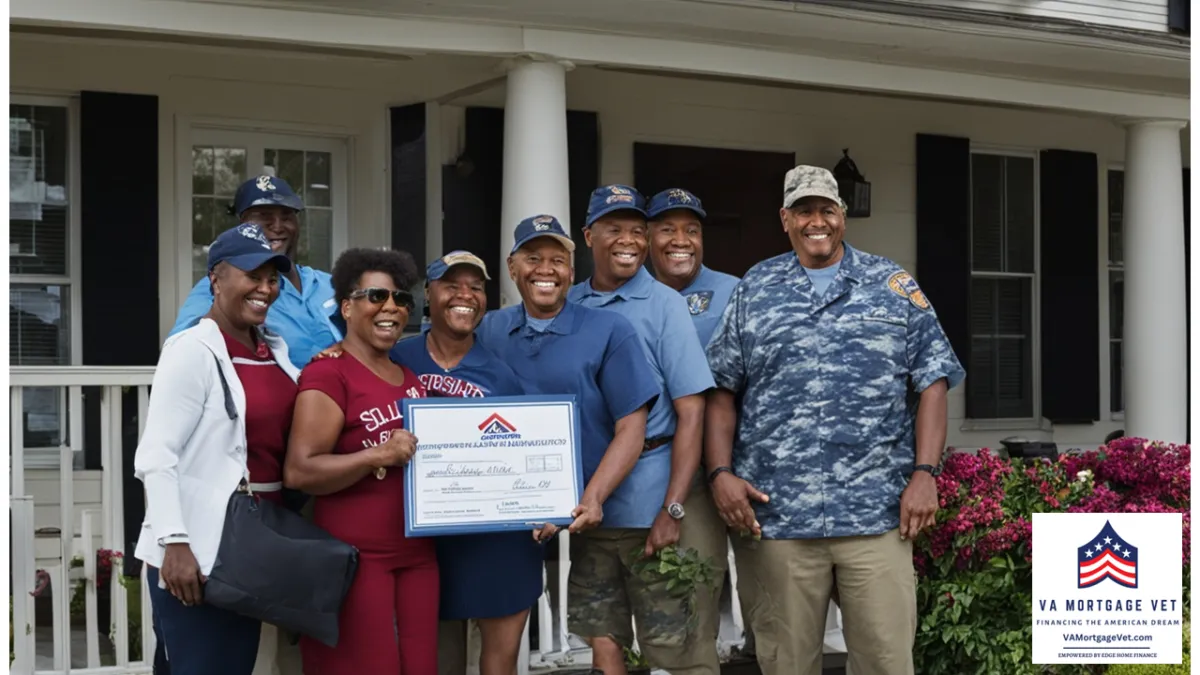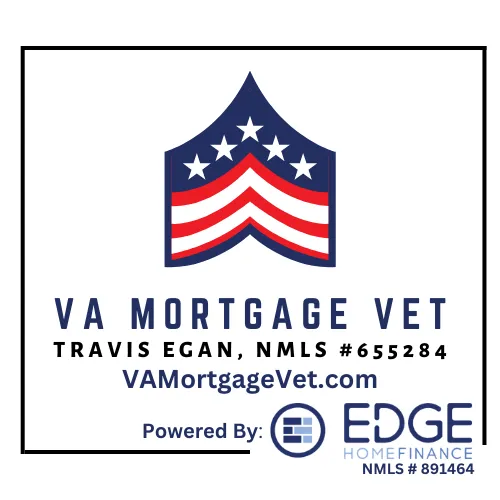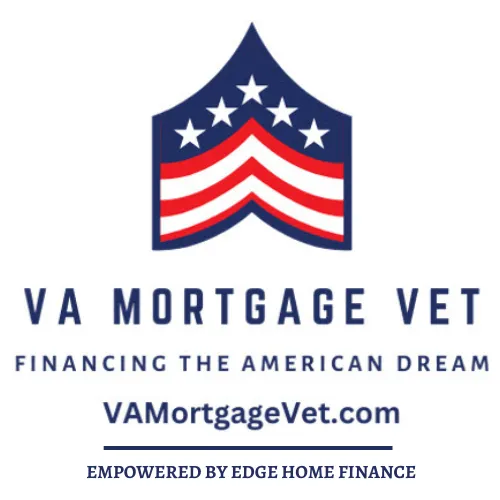COMING SOON: My new Book
"Boots to Roots: A Step-by-Step Roadmap for Turning
Your Military Service into a Lifetime of Home Ownership Success."
I HATE WHEN VIDEOS PLAY AS SOON AS THE PAGE OPENS
CLICK PLAY BELOW FOR A SPECIAL MESSAGE

Understanding VA Home Loan Requirements and Eligibility for Military Veterans
VA Loan Eligibility Are You Missing Out? Find Out Now!
Are you a service member, veteran, or surviving spouse wondering about your VA loan eligibility? The VA home loan program has great benefits. But understanding the loan requirements can seem hard. You might be missing a chance to get a mortgage with good terms. Check if you qualify by reading this.
For a VA home loan, you need a certificate of eligibility from the VA. This shows you are eligible, depending on your service period. It's important to meet the service time requirements. However, even if you don't, there are exceptions that may apply to you.
Key Takeaways
The VA loan program offers affordable home loans to eligible service members, veterans, and surviving spouses.
Minimum active-duty service requirements vary based on the period served, ranging from 90 days to 24 months.
You must obtain a certificate of eligibility from the VA to qualify for a VA mortgage.
Exceptions to service requirements may apply, such as being discharged for a service-connected disability.
Understanding your loan limit and loan amount eligibility is crucial when applying for a VA loan.
Understanding VA Loan Eligibility
Getting a VA loan can change everything for eligible service members, vets, and their families. It allows them to buy a home with good conditions. The process of checking if you can get this loan might seem hard. But it's all about your military service and certain life events.

Minimum Active-Duty Service Requirements
One big part of getting a VA loan is meeting the active-duty service term. The Department of Veterans Affairs makes this decision. The time you served affects how long you must have served:
If you served from August 2, 1990, to now (Gulf War onwards), you need 24 months of active duty.
If your service was from September 8, 1980, to August 1, 1990, you also need 24 months of active duty.
For the August 5, 1964, to May 7, 1975 (Vietnam War) period, the needed service is 90 days.
For service in Vietnam between November 1, 1955, and May 7, 1975, you also need 90 days of service.
Eligibility for National Guard and Reserve Members
It's not just active-duty folks who can get a VA loan. National Guard and Reserve members might qualify too. They must meet special service time rules. Generally, you need 6 years of good service or to meet active-duty terms.
Even if you think you don't meet the service requirements, there are exceptions. For example, if you were released for a service-connected disability,. Or, if you're the surviving spouse of a veteran or someone missing in action,. In those cases, you can still ask for a Certificate of Eligibility (COE).
Obtaining a Certificate of Eligibility (COE)
To start with a VA loan, get a Certificate of Eligibility (COE) from the Department of Veterans Affairs. This proves you're eligible according to the VA's rules and can get its benefits.
How to Request a COE
There are a few ways you can get your COE. You can apply online using the eBenefits portal. Or, your lender might be able to get it for you via their system. If you're more of a paperwork person, send in VA Form 26-1880 and your .
Acceptable Proof of Military Service
For military service proof, most use a DD-214 or a NGB-22 for the National Guard. But the VA might accept other types of military service too.
After sending in your information, the VA will check if you qualify for a COE. It normally takes 3–5 days. But other things could make it faster or slower. If you're approved, you'll get your COE. Then, you can show it to when seeking a VA home loan.
Exceptions and Special Circumstances
While you might not fit the standard VA loan requirements and eligibility, special cases can apply. The VA understands the sacrifices made by service members and their families. They've set up ways for more people to get the VA home loan benefit.
Eligibility for Surviving Spouses
Surviving spouses of veterans who died because of their service or while on active duty can get support. This includes using a VA loan for buying or refinancing a home. It helps them keep going after losing someone dear to them.
Eligibility for Allied Forces and Specific Organizations
The VA also helps non-U.S. armed forces service people, like those in the allied forces in World War II. Some members of groups like the Public Health Service and NOAA may also qualify. They can get the VA home loan benefit too.
If you're not sure about meeting the usual VA loan requirements and eligibility, look into these special cases. Many may miss out because they don't know all the rules. By checking with the VA, you can see if you're eligible to get a VA loan and own a home.
You might even be able to take over someone else's VA loan through loan assumption. This lets you keep the good terms of the VA loan program. So, always look at all your options to get the benefits you deserve.
VA Loan Eligibility: Are You Missing Out?
Understanding the rules for a VA home loan is key. Many who could get this benefit don't. But, by checking the VA loan requirements for 2024 and what your VA entitlement is, you might see if you qualify. Then, you can use the VA loan program.
The time you spent in active duty matters for your eligibility. This time needed ranges from 90 days to 24 months. And it depends on if you're a service member or a Veteran. The service you provided also matters. It might require 24 months straight or just 181 days, based on when you served.
Not sure if you're eligible or have questions? You can call the VA regional loan center at 877-827-3702, but only during work hours. They have people who can help. They'll walk you through what you need to know about the rules for being eligible.
More than 18 million service members have used VA loans since World War II. The VA Loan Guaranty program helps hundreds of thousands of people every year.
Even if you don't match the normal service time rules, you could still be eligible. For example, if you were discharged because of a service-connected disability,. Or if you're the spouse of a Veteran or someone missing in action,. In these cases, you might get a Certificate of Eligibility (COE).
Don't assume you're not eligible without checking. By learning more and talking to the VA, you could make a good choice. You might find out you can use this great home loan benefit.
Restoring Your VA Loan Entitlement
If you used your VA home loan requirements and eligibility before, you can get eligibility again. You need to submit VA Form 26-1880 and meet your regional VA loan officer with documents.
Selling or Paying Off a Prior VA Loan
To get your VA loan entitlement back, sell the house and clear your old VA loan. Around 80% of past VA loan users can qualify again this way.
Loan Assumption by a Qualified Veteran
If someone assumed your previous VA loan, your eligibility might return. They need to be a qualified veteran and transfer their eligibility to you officially.
One-Time Restoration Without Selling
Sometimes, you can reset your VA loan entitlement without selling. You need to follow certain rules and pay off the original VA loan. Then, you can get a new VA loan for a vacation home or as your primary residence.
You must take steps to regain your eligibility. Fill out VA Form 26-1880 and let the VA know. Approved VA lenders can help with this. If you're selling and buying a new home, they may speed up your process, depending on your situation.
VA Loan Limits and County Loan Limits
The VA offers many loan-type options with no maximum loan amount. This helps you buy your dream home. But there are loan limits by county that show the most the VA will insure. You can get VA coverage on loans worth more than $144,000 if you have full benefits. This is great because there is no top limit on how much the VA will insure if you qualify.
If you have some VA benefits left from a previous loan, the home you want to buy decides your limit. You might have to use some of the benefits left over and/or pay something. This is to ensure that you are covering 25% of the loan's excess over the county limit.
The VA-backed home loan limit is the most they'll pay if you can't make your payments. But, there is no cap on the loan amount for buying a home. The FHFA sets loan limits, which alter annually.
The VA will guarantee up to 50% of a home loan up to $45,000. For loans between $45,000 and $144,000, the minimum guaranty amount is $22,500, with a maximum guaranty of up to 40% of the loan up to $36,000. For loans of more than $144,000, the maximum guaranty is the lesser of 25% or $104,250.
To see how much of a VA loan you can get, lenders look at your credit and money you make. They also see what you have saved and any investments you have made. The amount you can borrow depends on what the home is worth, the purchase price, and some other fees.
While the VA program doesn't set a hard limit, big loans with no down payment are usually not over $417,000. This is because of rules in the loan market. If you’re thinking of taking another VA loan, make sure you understand the rules and limits. This is crucial for smart home buying decisions.
Full Entitlement vs. Remaining Entitlement
Your Certificate of Eligibility (COE) shows if you have VA loan entitlement. It tells whether you have full or remaining loan entitlement. This impacts your loan process and what you need to get a VA-backed home loan.
Having full entitlement means VA loans don't require a down payment. This is because the VA doesn't impose loan limits for loans over $144,000. The VA steps in and pays part of the loan to the lender if you can't, for these big loans.
If your entitlement is less, you might need to put down money. This is for loans that go over the county's loan limit. The VA helps, but only what's within your remaining entitlement.
Understanding Your Certificate of Eligibility
Your loan certificate of eligibility tells lenders what the VA will cover. For loans up to $144,000, the VA backs up to $36,000 if you have full entitlement. For bigger loans, the VA covers 25% of the loan amount.
It also says if you're free from funding fees and loan costs. Lenders trust the "EXEMPT" mark for surety. If you're not exempt, it lists what you have to pay.
Knowing about your COE is key for using your VA home loan benefits. It shows if you're eligible, how much you can get, and what you might need to pay or fees.
Applying for a VA-Backed Home Loan
VA home loans are available if you work with a VA-approved lender. The VA itself doesn't impose minimum credit score requirements, but lenders might. They look at your credit, income, and assets to decide if you qualify and for how much. It's wise to talk to several VA-approved lenders to find the best deal.
Working with VA-Approved Lenders
Getting a VA-backed home loan means teaming up with a VA regional loan center and an approved lender. These experts know the VA's rules, making the process easier. A VA-approved lender will help you with steps like getting your Certificate of Eligibility and other paperwork.
Credit Requirements and Loan Approval
Even though the VA doesn't impose minimum credit score requirements, lenders may have their own standards. They review your credit, income, and assets to see if you're a good risk and for how much they'll lend. If you have a lower credit score but a steady income, you might still get a VA home loan.
Checking with the VA and several VA-approved lenders is smart. This helps you understand if you meet their credit needs and what rates and terms they offer. By comparing, you can pick the best deal for your budget and plans. Remember, lenders' credit standards vary, so talking openly with them about your situation is key.
Even if you could get a non-VA loan, some people choose VA loans for good reasons. They include no down payment required and low interest rates. Not sure if you qualify or have questions? Contact the VA or a knowledgeable lender who works with VA loans.
Reusing Your VA Loan Eligibility
If you've used your VA loan already, you might wonder if you can apply for another. The good news is you can often reuse your VA loan eligibility. Yet, there are conditions to remember.
Loan Assumptions and Defaults
If a previous VA loan was taken over by a veteran who later failed to pay, it affects you. In these cases, your ability to apply for a new loan might not be restored immediately. This is until the VA's claim from the defaulted loan is paid off in full.
Foreclosures and Compromise Claims
A previous foreclosure or compromise claim can also delay your new loan application. You have to wait until the VA's sake is fully satisfied. You'll need to wait before trying to get another VA loan.
You should contact the VA if you want to apply for another loan. They will investigate your situation. They will tell you if you can get your eligibility back. Or, they might suggest more actions you should take first.
If you've had problems with a VA loan before, don't lose hope. By working with the VA and being patient, you might qualify again. The VA's program is designed to help you own a home.
VA Loan Benefits for Surviving Spouses
If your spouse died from a service-related issue while on duty, you might get benefits from the VA home loan program. This could help you get a new loan or change your current one for a better deal.
Eligibility depends on many factors, like if and when you got remarried. There are cases where you can still get the loan benefit even if you remarry. To see if you qualify, it's best to reach out to the VA. Share your details with them.
Once you're in, you can enjoy what VA loans offer, like no down payment. You also get to skip mortgage insurance payments.
Competitive interest rates
No down payment requirement
Lower credit score minimums
Exemptions from mortgage insurance payments
But, VA loans come with rules, just like they do for veterans. This means going through paperwork, showing your finances, and meeting loan standards.
Getting a VA loan as a surviving spouse might be a bit tricky. You must follow the VA's rules closely. Also, think about any extra costs that might come up before the loan is closed.
Best Practices
Many VA loan borrowers have questions about their eligibility. Understanding these answers makes navigating the process easier. It ensures you get all the benefits a leading VA lender offers.
The VA guarantees a portion of the loan amount, giving lenders added security and making it easier for eligible borrowers to obtain favorable terms.
Wondering how to apply for a VA loan is a common question. First, you need a Certificate of Eligibility (COE) from the VA. This ensures the home's quality and that you're eligible. Lenders can give you a COE right away if you qualify online through the Web LGY system.

Many ask about reusing VA loan eligibility after selling a house. If you sell but pay off your loan, or a new eligible person takes over, you're eligible again. Yet, you must repay any previous loan's losses first.
VA requires borrowers to have served for a minimum time. The amount varies, like current members needing 90 days and Gulf War veterans needing 24 months. There are exceptions for some discharges and disabilities.
Surviving spouses of veterans who died on active duty or due to a service-connected disability are also eligible for the VA home loan benefit.
If a portion of eligibility remains due to an unpaid prior loan, that balance can still be used for a new VA-guaranteed home loan.
To request entitlement restoration, borrowers must submit VA Form 26-1880 to their regional VA loan center.
If you have more questions or need help, VA loan borrowers can call their local VA loan center. The number is 877-827-3702 (TTY: 711), open Monday through Friday, 8:00 a.m. to 6:00 p.m. ET.
Conclusion
VA home loan eligibility requirements are broad. They're designed to help lots of service members, veterans, and surviving spouses. By knowing these rules and filling out the right VA form, you can see if you qualify for a current VA loan or another specific VA loan program.
If you're buying a home for the first time or switching your VA loan for a new one, it's good to follow the Department of Veterans Affairs' guidelines. VA lenders must stick to these rules. So, as a VA loan applicant, make sure to choose these lenders. And prepare all the needed documents to make things go smoothly.
The VA home loan is a great choice. It has low rates, little closing costs, and doesn't need mortgage insurance or big down payments (for most). This is better than the usual conforming loan limits and common loans. Don't let this chance pass you by – check if you can use this program. Then, take the steps to own a home through the VA loan.
FAQs (Frequently Asked Questions)
Q: What are the basic VA home loan requirements?
To qualify for a VA home loan, you must meet specific loan requirements and eligibility guidelines, including being an active-duty service member, veteran, or surviving spouse. You must also meet credit and income standards set by the VA and have a valid Certificate of Eligibility (COE).
Q: How does the VA funding fee work?
The VA funding fee is a one-time fee paid to the Department of Veterans Affairs, reducing the loan's cost for U.S. taxpayers. The amount varies based on your down payment and whether you've used the VA loan benefit before.
Q: Can I use a VA home loan more than once?
Yes, you can use a VA home loan multiple times, as long as you have sufficient VA entitlement and meet the loan qualifications each time. If you have paid off a previous VA loan, your full entitlement can be restored.
Q: What are the property requirements for a VA home loan?
The VA has minimum property requirements to ensure the home is safe, structurally sound, and sanitary. An approved VA appraiser will inspect the property to confirm it meets these standards.
Q: Who is eligible for a VA home loan?
Generally, veterans, active-duty service members, National Guard members, and reservists are eligible for a VA home loan. Certain surviving spouses of deceased veterans may also be eligible for a VA loan.
Q: What is the VA loan entitlement?
VA loan entitlement is the amount that the VA will guarantee for a loan, which helps eligible veterans secure mortgage financing without a down payment. Basic entitlement is $36,000, but most lenders will lend up to four times that amount without requiring a down payment.
Q: How do I apply for a VA loan?
To apply for a VA loan, you'll need to obtain your Certificate of Eligibility (COE), gather your financial documents, and find a lender that offers VA home loans. The lender will guide you through the process, including the VA appraisal and loan closing.
Q: What is required to obtain a Certificate of Eligibility for a VA loan?
To obtain a Certificate of Eligibility (COE), you must provide the VA with proof of service, such as DD Form 214 for veterans, a current statement of service for active-duty members, or discharge paperwork for National Guard or reserve members.
Q: How does a VA appraisal differ from other home appraisals?
The VA appraisal not only determines the property's market value but also ensures the home meets the VA's minimum property requirements. This helps protect VA borrowers by ensuring the home is safe, clean, and structurally sound.
Q: Can you sell your home if you have a VA loan?
Yes, you can sell your home with a VA loan. If the buyer is also eligible for a VA loan, they may choose to assume your existing VA loan. Otherwise, the loan must be paid off from the sale proceeds.
For further advice on how to make sure your VA home loan process goes as fast and smoothly as possible, please read our article titled: Why Sellers Might Refuse to Accept a VA Loan Offer from Buyers
Contact Us
5868 Baker Road
Minnetonka, MN 55345
Travis Egan, VA Mortgage Vet
Programs, rates, terms and conditions are subject to change at any time without notice. All approvals are subject to underwriting guidelines.
Restrictions apply depending on program selected.
No official U.S. military or other government agency endorsement is implied.
Copyright © 2024 Edge Home Finance | All rights reserved.
Copyright © 2024 | Edge Home Finance | All rights reserved.





